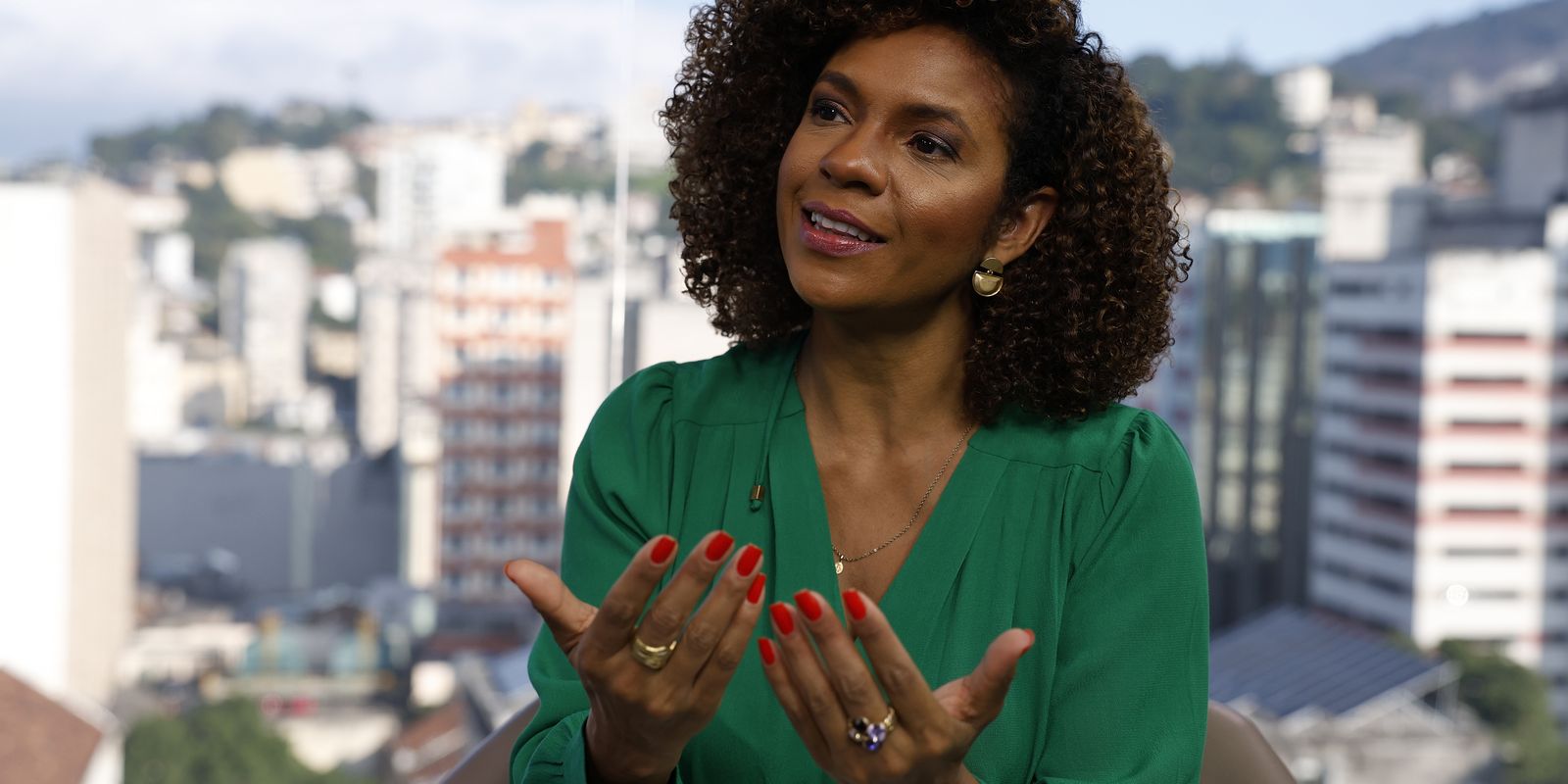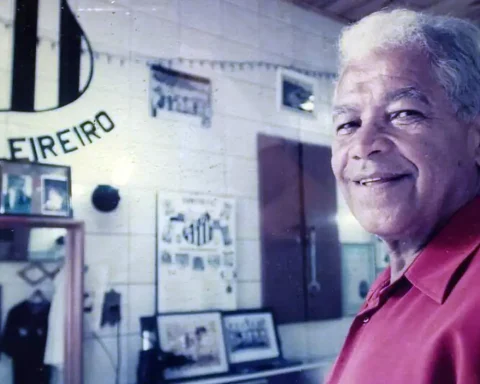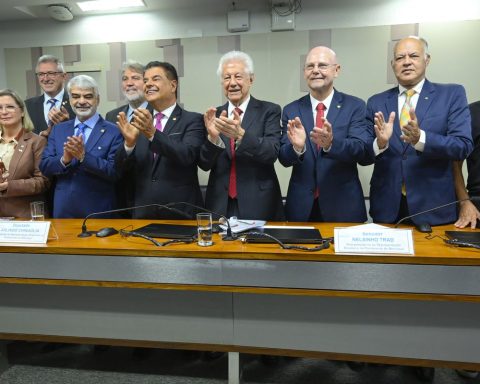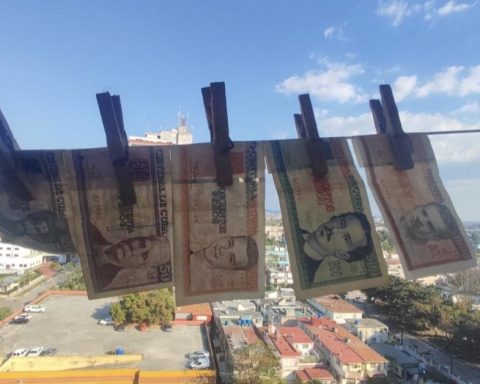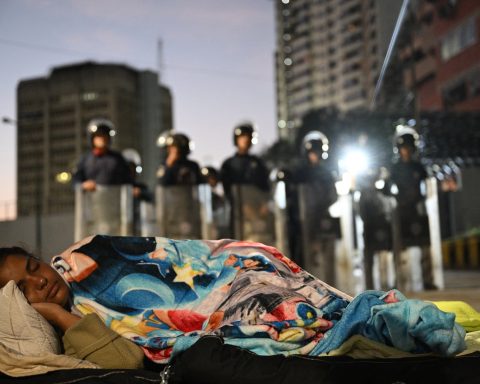It was with surprise and happiness that journalist Luciana Barreto received the news that her first book, Hate Speech Against Black People on Social Mediais among the five finalists in the scientific dissemination category of the first edition of the Jabuti Academic Award.
“It’s my master’s dissertation. And I dedicated a lot of time to it for a genuine reason: I wanted to contribute a lot to something that, for me, bothered me a lot, which is the increase in hate speech on social media,” he says.
Luciana Barreto has a master’s degree in ethnic-racial relations, is a speaker, writer, researcher and presenter at TV Brazil. After learning about the Teaching Tolerance project in the United States, she returned to Brazil wanting to create a similar initiative here as well. The project not only offers support to victims of hate speech, but also produces support materials to guide schools and society.
The creation of the project is still on the radar, but before that, Luciana took the idea to her master’s degree, which, at the end of last year, also became a book. In the work, which she emphasizes, is not aimed only at black people, but at society as a whole, she first provides a historical context for Brazil, the construction of society and how racism is structured. She then analyzes publications with hate speech on social media.
“I think this is the book’s biggest warning: people think it’s just kids talking on social media. No. Today’s discourse is interfering in Brazilian society,” he says.
According to her, urgent measures are needed, such as holding large technology companies, the so-called big techs, responsible for social networks, accountable and demanding action.
“Hate speech kills. And hate speech causes death. Because people are committing suicide because of issues on social media. People are addicted. People are having serious problems related to social media,” emphasizes the journalist.
The finalists in each of the award categories were released this Thursday (18). The Jabuti Prize is Brazil’s main literary award, created by the Brazilian Book Chamber and held since 1958. This year, to draw attention to significant contributions to science in the country, a new category was launched, the Academic Jabuti Prize, which has the support of the Brazilian Society for the Advancement of Science (SBPC) and the Brazilian Academy of Sciences (ABC).
Hours after finding out the result, Barreto spoke to the Brazil Agency. Check out the main excerpts from the interview:
Brazil Agency – How do you receive this result, this recognition?
Luciana Barreto – First of all, of course I’m very happy. But I’m very surprised, because sometimes I think we work so hard and without any real expectations. I didn’t even have any expectations of this becoming a book. It’s my master’s thesis. And I dedicated myself to it for a genuine reason: I wanted to contribute a lot to something that bothered me a lot, which is the increase in hate speech on social media. I actually saw my friends calling me crying. And I’m talking about extremely empowered people. People who have positions, who have money, who are recognized and who were vulnerable when faced with hate speech.
I had already intended to study this. When I went to the United States, I learned about this project, called Teaching Tolerance. It was a project that provided all the support for victims of hate speech, from legal support, material support, to support for teachers, to teach this counter-discourse. When I saw all this, I said, let’s take it to Brazil. But then I had a genuine intention, my intention was to present people with a proposal to protect themselves from hate speech, what I call counter-discourse. To realize that this became a book, that is, it has a wider distribution among people. And then to realize that this book has gained recognition. For me, it’s incredible.
Brazil Agency – Tell us a little about what the book is about and how it is structured.
Luciana Barreto – The book is the result of a master’s dissertation, but it is written by a journalist. So, that makes all the difference. In the first part of the book – I say that this is a book aimed not only at black people, despite being a book about hate speech against black people, it is aimed at everyone to read – and for that, I have a first part of the book introducing the reader to terms, introducing the reader to the history of the black movement.
In a second moment, I go into this more academic part. The book is in the area of discourse analysis. I take expressions of hate speech that are very common on social networks and I analyze them. And then I understand why hater [em tradução livre, odiador. É um termo usado na internet para classificar pessoas que postam comentários de ódio] uses this expression, what kind of objective does the hater want to achieve by using this expression. When the reader gets to this part, he already understands that there is a whole social and economic issue involved with the racial issue. He realizes, for example, why expressions like “whining” are used, why they focus on black women, for example, with a slightly more advantageous economic and social condition.
The reader already understands that the condition of black women in the opinion of haterand sometimes in a significant part of Brazil, unfortunately, it is a condition in which she is in a position of service. So, if she appears in a position of power, she suffers hate speech. If she appears in a position of beauty that is very linked to white people, she suffers hate speech. So, the reader begins to understand this entire mechanism of oppression that victims of hate speech go through.
Brazil Agency – Can you give us an example?
Luciana Barreto – One example is the expression “whining,” which I analyze in this book. “Whining” is always a pain. People joke that “whining” is the pain that someone else feels. The starting point is to say that your claim is a lesser claim. That’s the idea of “whining.” The hater always wants to bring up a supremacist idea, I would say, saying that there is a group that doesn’t complain, that lives life, works. This idea that there is this group – and we know which idealized group it is – and, on the other hand, there is a group that complains. So, that’s what discourse analysis is for. My idea was to make people understand, my friends too, to show: he’s using this term to paralyze you, to make you regress, to go back, to leave you static, and that’s not worth it, because there’s a supremacist idea involved here when he uses certain expressions with you.
I even use a study by researcher Luiz Valério Trindade. He quantified hate speech on Facebook. There is a very large percentage of black women as the main target. haters It is usually young boys who pursue these black women. And he brings up ten items in which they are pursued: when they are traveling abroad, for example, on vacation, if they are in the Northern Hemisphere, if they go to the United States and Europe; if they have an interracial marriage; if they use black hair as a sign of beauty; if they are in a liberal professional position, such as a lawyer, journalist, presenter; if they win a beauty contest. He goes on to list some topics in which these women, who are the main target, appear most frequently as targets of haters.
I don’t do a quantitative analysis, as I said, I do a discourse analysis. So, I analyze the words, the expressions and how they are placed, how they appear and for what purpose.
Brazil Agency – What is the role of social media in the dissemination of hate speech and how can the dissemination of this type of content be combated?
Luciana Barreto – The discussion on regulation is a very slow discussion, I think, and we really need to demand more from big techs. And that’s what other countries are doing, they’re going straight to it. I think that’s what we’re going to achieve most immediately. Why do I say immediately? Because hate speech kills. And hate speech kills. And hate speech causes death. Because people are committing suicide because of issues on social media. People are addicted. People are having serious problems related to social media. We can’t wait for years and years of discussion about this.
Brazil Agency – In the book you mention the Teaching ToleranceAre there similar initiatives in Brazil?
Luciana Barreto – We don’t have anything like that. They are a project from Alabama, a place where there is a lot of hate speech, which is the birthplace of the civil rights movement. There were attacks against the black population, where there were bombings in churches, where there were murders, hangings, and where there is still an open wound. I was there in the last year of Barack Obama’s government. They were already noticing the increase in far-right speech that ended up bringing Donald Trump to power shortly after. But they were already noticing an increase in hate speech. Hate speech against foreigners, an increase in xenophobia, against Latinos, hate speech against blacks, meritocratic speech that often passes for hate speech, speech against the LGBT population. That was 2016. So, they were trying something, a platform that would give full support and assistance, not only to combat hate speech, but also to the victim. I thought that was incredible. I thought I needed to come back and propose something here. That’s when I came up with the idea of enrolling in the master’s program.
Brazil Agency – In one of the summaries of your book, a sentence caught my attention that says that hate is a form of exclusion.
Luciana Barreto – That’s right. I think that’s the biggest warning in the book: people think it’s just kids talking on social media. No. Today’s discourse is interfering in Brazilian society. And the big platforms [redes sociais] distribute this speech preferentially. That is the question.
